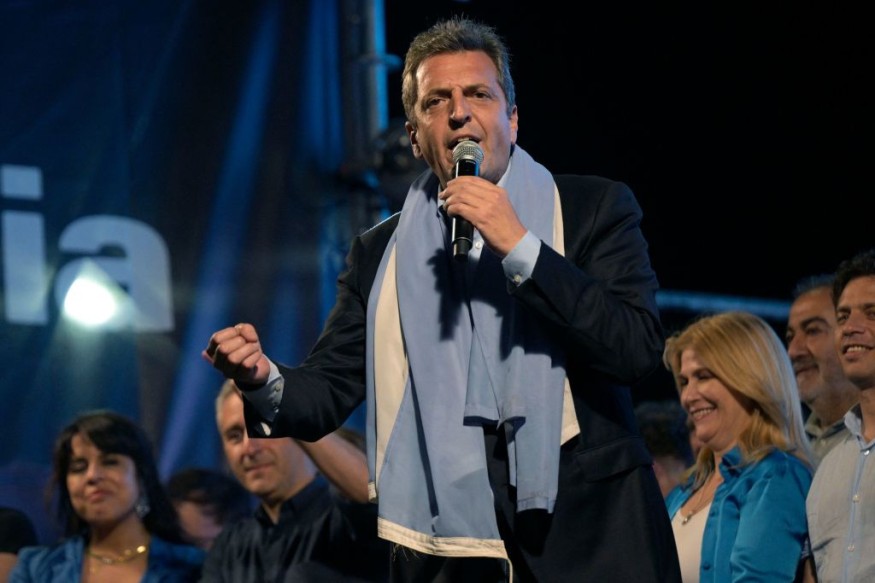Argentina: Sergio Massa Leads Presidential Election With Almost 90% of Votes Counted

In a surprising turn of events, Argentina's ruling Peronist coalition surpassed expectations in the general election held on Sunday, setting the stage for a polarized runoff vote next month.
The runoff will feature Economy Minister Sergio Massa and far-right libertarian radical Javier Milei as the leading contenders.
With nearly 90% of the votes counted, Massa secured over 36% of the vote, ahead of Milei, who garnered just over 30%, according to Reuters.
Conservative Patricia Bullrich trailed behind with 23.8%. This outcome defied the pre-election polls, which had predicted a libertarian victory.
Despite overseeing inflation reaching triple digits for the first time since 1991, the Peronists displayed unexpected strength, paving the way for an intriguing second round on November 19.
This runoff will give Argentina a choice between two starkly opposing economic models for their economically beleaguered nation.
Against Argentina's worst economic crisis in two decades and mounting discontent with the traditional elite, voters flocked to the polls.
Many had previously pointed fingers at the Peronists for the country's troubles.
However, Massa, known for his moderate stance, defended the government's social safety nets and subsidies, emphasizing their importance for vulnerable Argentines.
He even demonstrated how train and bus fares could rise sharply if he did not win the Argentina presidential election.
READ NEXT : Argentina Presidential Election 2023
Sergio Massa
Sergio Massa, who had faced disappointment eight years ago when he finished third, now has a shot at the runoff, AP reports.
He argued that he inherited a precarious situation, further exacerbated by a devastating drought severely impacting the country's exports.
Despite the challenges, Massa assured voters that the worst was behind them.
"To address a multitude of problems, regardless of who governs, Argentina continues," Massa declared after casting his vote in Buenos Aires.
To win the presidency outright and avoid a November 19 runoff, a candidate must secure 45% of the vote or 40% with a 10-point lead over the runner-up.
In the final days of his campaign, Massa focused on cautioning voters against electing Milei, portraying him as a risky newcomer.
Massa warned Milei's plans could harm social welfare programs, education, and healthcare.
Problems Await New Argentina President
The new president will inherit a challenging economic situation. Argentina is grappling with skyrocketing inflation, reaching 138% in September, per Al Jazeera.
Additionally, the country faces difficulties repaying substantial international debt to the International Monetary Fund.
The incoming leader must confront the formidable task of reviving Argentina's economy.
Furthermore, Argentina's decisions will influence its relationship with neighboring South American countries, particularly Brazil, as the country is a member of the South American trade bloc Mercosur.
The outcome of the Argentina presidential election could shape the trajectory of a trade deal with the European Union, which Mercosur has been seeking.
Climate change is another pressing issue on Argentina's political landscape, as the country experienced historic droughts this year, leading to increased food prices and economic strain.
The future of abortion rights in Argentina is also at stake. Milei has vowed to hold a referendum on abortion rights, labeling it "murder."
In 2020, the country's Congress legalized abortion up to the 14th week of pregnancy, allowing it in later stages in cases of rape or risk to the mother's health.
Read also: Nicaragua: Jailed Catholic Priests Freed
This article is owned by Latin Post.
Written by: Bert Hoover
WATCH: The rundown on Argentina's presidential election - From Reuters
Subscribe to Latin Post!
Sign up for our free newsletter for the Latest coverage!
© 2026 Latin Post. All rights reserved. Do not reproduce without permission.













